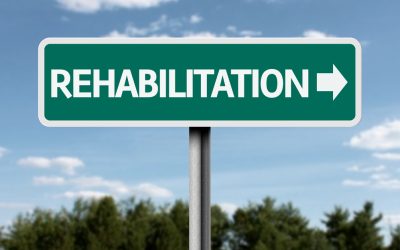
According to research put out by the Public Policy Institute of California (PPIC), all but about 2% of felony cases end in a plea agreement before reaching trial. Like other criminal charges, DUI convictions are overwhelmingly reached through a plea agreement. If you have been charged with a DUI, you will likely be approached by the prosecution about taking a plea bargain instead of proceeding to trial.
While it may be tempting to move the process forward quickly, it’s not always in your best interest to take the first plea deal that comes your way. Until you’ve had an expert evaluate the case against you, you may be agreeing to a much harsher penalty than the facts would suggest.
Before deciding on a plea deal, speak with a lawyer who has experience handling DUI cases. We can connect you with a leading DUI lawyer to evaluate the charges against you for free. Simply call (310) 953-8417 to schedule your free consultation today!
What You Should Know About a DUI Trial
After you’ve been arrested for a DUI, you’ll be arraigned in front of a judge. If you don’t plead guilty or no contest, the judge will set a date for a trial. This is typically within 45 days of your arrest, but it may be in 30 days if you remain in jail after the arraignment.
As in other criminal cases in California, a DUI trial will be decided by a jury. The jury will be selected from members of the local community, though individual members will be determined by the prosecution and your defense lawyer.
The prosecution will be trying to prove to the jury that you were driving while having a blood alcohol concentration above the legal limit, which can range from 0.01% to 0.08% depending on the circumstances of your case. Your lawyer will try to challenge the evidence, hoping to raise a reasonable doubt about the prosecution’s theory of the case.
The jury will then decide if you are guilty or not guilty. If they find you guilty, the judge will sentence you in accordance with California law.
Going for a Plea Deal or a Trial
Whether it is worth it to go to trial or to accept a plea agreement will depend heavily on the unique facts of your case. Even skilled DUI lawyers who have won many trials will encourage you to take a plea deal because juries can be unpredictable.
Ultimately, what will help you determine if it is worth it to go to trial is the plea deal that the prosecution brings to you. If you have a DUI lawyer on your side, you can have them negotiate the terms of the plea deal. The weaker the case against you, the more lenient a deal you can reach. In some cases, these sorts of negotiations can lead to the case being dismissed because of holes in the prosecution’s evidence.
If you have a strong defense but the prosecution is not willing to negotiate on the terms of a plea agreement, you may find it more beneficial to proceed to trial. In this scenario, turning down the plea agreement allows you to have both a jury settle the contested facts of the case and allow the judge to potentially offer a more lenient sentence than the prosecutor was offering.
Speak to a DUI Lawyer Before Deciding if it’s Worth Going for a Trial
Prosecutors don’t want to bring cases to trial if they don’t have to, but they also don’t hand out lenient plea deals on their own volition. Their desire to avoid a trial can be used as leverage, but only if you know how to properly negotiate for a better deal. Otherwise, you need to be prepared to argue your case in front of a judge and jury.
Having a DUI lawyer evaluate your case is a great first step to determine if it will be worth it to trial for a DUI. Experienced DUI lawyers can give you some idea as to how well a trial could play out, though they will never guarantee a particular outcome. After all, no case is unwinnable.
Since a trial will come quickly, it is likely in your best interest to reach out to a DUI lawyer now. The sooner you speak with a knowledgeable DUI attorney, the more time you have available to build the best defense possible. Call (310) 953-8417 to speak with one of our representatives about scheduling a free case evaluation and consultation.






